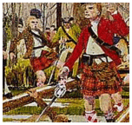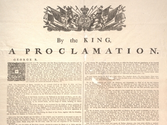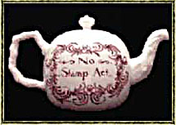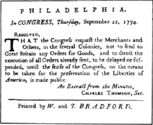-
About
- About Listly
- Community & Support
- Howto
- Chrome Extension
- Bookmarklet
- WordPress Plugin
- Listly Premium
- Privacy
- Terms
- DMCA Copyright
- © 2010-2025 Boomy Labs

 Tina Moses
Tina Moses
Listly by Tina Moses
Here are resources for the American Revolution

Religion played a major role in the American Revolution by offering a moral sanction for opposition to the British--an assurance to the average American that revolution was justified in the sight of God.

This article is from Tar Heel Junior Historian , published for the Tar Heel Junior Historian Association by the North Carolina Museum of History. Used by permission of the publisher. For personal use and not for further distribution. Please submit permission requests for other uses directly to the museum editorial staff.

From a general summary to chapter summaries to explanations of famous quotes, the SparkNotes The American Revolution (1754-1781) Study Guide has everything you need to ace quizzes, tests, and essays.

Timeline of Events + Revolution Day by Day + Revolutionary Stories + Revolutionary People + Revolutionary Links

The end of the French and Indian War in 1763 was a cause for great celebration in the colonies, for it removed several ominous barriers and opened up a host of new opportunities for the colonists. The French had effectively hemmed in the British settlers and had, from the perspective of the settlers, played the "Indians" against them.

Find out more about the history of Proclamation of 1763, including videos, interesting articles, pictures, historical features and more. Get all the facts on HISTORY.com

Liberty`s Kids Season 1 Episode 02 Part 1/2 "The Intolerable Acts" Synopsis: While in hiding, Sarah hears the stories of poet Phyllis Wheatley and learns about slavery.

Published in 1776, Common Sense challenged the authority of the British government and the royal monarchy. The plain language that Paine used spoke to the common people of America and was the first work to openly ask for independence from Great Britain.

The Stamp Act was passed by the British Parliament on March 22, 1765. The new tax was imposed on all American colonists and required them to pay a tax on every piece of printed paper they used. Ship's papers, legal documents, licenses, newspapers, other publications, and even playing cards were taxed.

Salutary neglect is a term used in the American history, referring to an unofficial and long-lasting 17th- & 18th-century British policy of avoiding strict enforcement of parliamentary laws, meant to keep the American colonies obedient to England.
